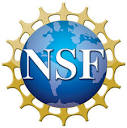AGEP-North Carolina Alliance: An Institutional Transformation Model to Increase Minority STEM Doctoral Student and Faculty Success
Vision
The AGEP-NC project will develop a corps of 28 faculty, called AGEP-NC Fellows, their department heads and graduate directors to lead their faculty colleagues in transforming department culture and practices to prepare under-represented minority (URM) dissertation students for faculty careers.
Model of Change and Activities
The AGEP-NC Fellows will facilitate a faculty process to develop concrete plans for promoting URM dissertation completion and progression to faculty roles. Recognizing that changing faculty attitudes, practices and doctoral programs requires “deep change,” the AGEP-NC project puts into practice five key strategies in this process: (1) leadership commitment, (2) collaborative leadership by AGEP-NC Fellows, department heads and the project PIs, (3) usage of information from surveys and interviews of graduate students and faculty, (4) development of faculty awareness and skills, and (5) sharing project goals and outcomes with the department.
Project Goals
Adapt this model of institutional change to build inclusive doctoral programs, demonstrate the effectiveness of the AGEP-NC model in a wide range of STEM departments, and increase understanding of how this model shifts faculty perspectives and practices to promote success of URM dissertation students.
Alliance Institutions, Target Audience and Stage
North Carolina A&T State University, North Carolina State University, and the University of North Carolina at Charlotte, three diverse institutions with longstanding collaborations, join together to challenge the flexibility and portability of the AGEP-NC model. The AGEP-NC project focuses on faculty because they have direct influence on doctoral students’ progress and preparation for faculty careers, as well as setting the requirements of the doctoral program. AGEP-NC focuses on the dissertation stage because URM doctoral completion rates are substantially lower than other students’, and a PhD is the base requirement for a faculty career.
Social Science Research
The overarching research question is in what ways can mentor training adequately prepare mentors to engage in effective culturally responsive mentoring of URM dissertation students? Insights gained through an embedded case study design using interviews and surveys will be continuously incorporated into materials and training for faculty participants.
Intellectual Merit
The AGEP-NC project will advance knowledge about two reinforcing sets of questions: (1) can a focus on developing faculty advocates utilized in ADVANCE institutions for promoting faculty diversity be adapted to engender change in doctoral program inclusivity? and (2) in what ways does training build faculty knowledge, skills, and dispositions for culturally responsive dissertation mentoring? Can faculty advocates successfully catalyze wider change? The AGEP-NC project posits that this collaborative model, with attention to the five key strategies in the AGEP-NC model of change, will create sustainable enhancements to doctoral programs, their culture and faculty approaches to mentoring diverse dissertation students. Longitudinal data on attitudes, experiences, and skills of faculty and students will be combined with in-depth descriptions from the perspectives of doctoral students and dissertation advisors of how elements of the AGEP-NC project translate to the dissertation experience and career trajectories.
Broader Impacts
The AGEP-NC project demonstrates a robust model that may be implemented by different types of institutions and partnerships to kindle the type of culture change necessary to move toward greater faculty diversity. The project will engage 28 STEM departments with approximately 700 faculty in developing and implementing concrete plans to promote URM doctoral degree completion and progression to faculty careers. The project activities will enhance faculty understanding of the importance of diversity and inclusion in STEM disciplines and improve mentoring of URM students. By focusing on faculty and on developing formal departmental plans, this AGEP-NC project will create enduring structures to improve the doctoral experience in the short term, and increase URM completion and progression to faculty careers in the long term. Culture change will be sustained and expanded to additional departments by creating a certificate program to recognize departments that develop and implement diversity plans for their graduate programs. Knowledge gained through AGEP-NC project implementation and research findings will be extended to other universities through workshops and a half-day short course.

